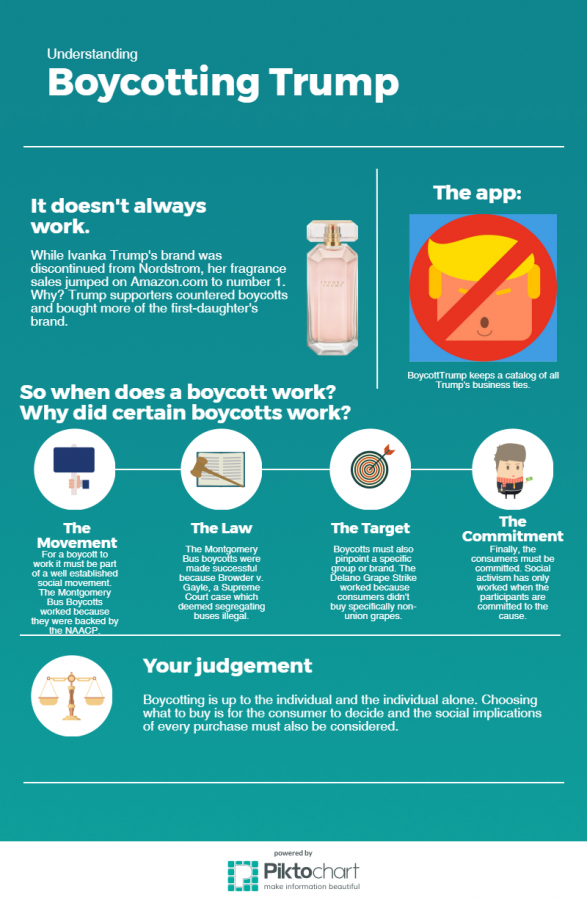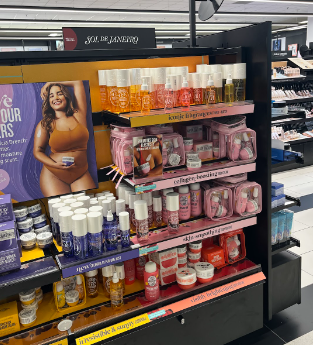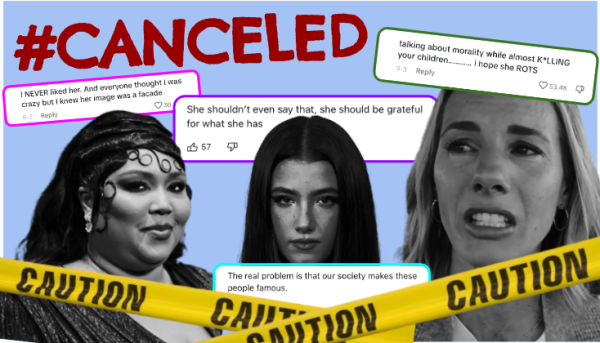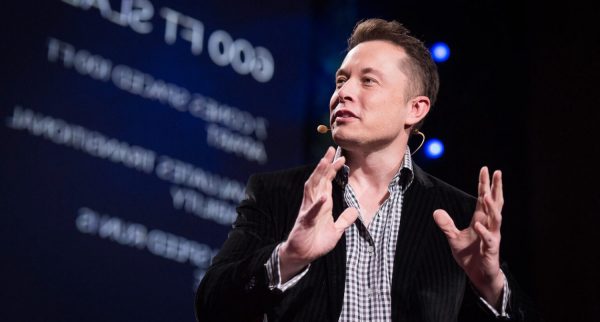Protesting with your wallet: Does it work?
March 20, 2017
Throughout history, economics and protesting have gone hand and hand: during the Revolutionary War the patriots boycotted British-made goods. In the midst of the civil rights movement along with marches and sit-ins, there were boycotts of segregated public transportation, but is boycotting effective or even easy?
Effective? Maybe. Easy? No. In 2012, when Chick-fil-A’s CEO was supporting anti-gay rhetoric, I still went to get my four piece chicken strip meal with a lemonade, but I ate my food with a twinge of guilt because I disagreed with the views of the Chick-fil-A company’s CEO. I had no “beef” with the staff of the local Chik-fil-A, so what should I have done?
Now many people are beginning to protest our controversial President by boycotting products and services related to his businesses and his supporters’ businesses. Trump’s multiple business holdings, that pose a potential ethical nightmare, have also been put in the spotlight by activists boycotting the Trump name.
From Ivanka Trump’s fashion line to Trump Ties, boycotting anything related to our Commander-in-Chief has become a quick and easy way to be an activist. When one chooses not to buy something it is just as easy as sharing a Washington Post Editorial or meme, but makes the person boycotting the product feel like he/she is “doing something.” Yet, is protesting Trump really going to make that much of a difference?
Probably not. In fact just this week Ivanka Trump’s perfume became Amazon’s top-selling fragrance as Trump supporters responded to the boycotts against the Trump name.
Yet, I think that, for many, the large scale difference is less important than the personal one. Trump critics, myself included, just don’t want to give the man, or his family, our money. I sleep better knowing I have tried to take action.
There is an app made by Democratic Coalition Against Trump, a political action committee. The app, called BoycottTrump, keeps an inventory of all companies that have ties to Trump so consumers can instantly see what companies they may want to avoid purchasing goods from.
Before blindly boycotting the companies on this app, though, it is important to note that BoycottTrump keeps a list of Trump-related businesses that is almost too comprehensive. For example, companies like AT&T and Dr. Pepper simply sponsored the Celebrity Apprentice while Donald Trump was on the show. The app does provide a description of the ties, however, and it is very important that the little blurb about the company is read so one can boycott intelligently.
If, however, downloading this app and shying away from certain brands does not feel like enough financial activism, allow me to introduce another idea of monetary morality. In my opinion, it is the better way to put your wallet to work. Instead of being AGAINST, why not work FOR something that is meaningful to you.
John Oliver, an outspoken anti-Trump advocate and comedian, recently came out with a list of charities that will support those negatively affected by Trump’s presidency. These charities include Planned Parenthood, Center for Reproductive Rights, Natural Resources Defense Council, International Refugee Assistance Project, NAACP Legal Defense Fund, The Trevor Project, Mexican American Legal Defense and Educational Fund, and ProPublica. These groups defend everything from reproductive rights to free press and will be more valuable in upholding progressive values than not buying an Ivanka coat at Burlington Coat Factory will be.
In the coming years, many of us will each protest in our own ways, whether it is marching or “merching.” What really matters is that, if you feel the need for your voice to be heard, you should find an outlet that is meaningful to you and will bring about change no matter how consequential.













Jason Minklaire • Mar 23, 2017 at 1:06 pm
Garrelt sure is a smart boy!Love him!